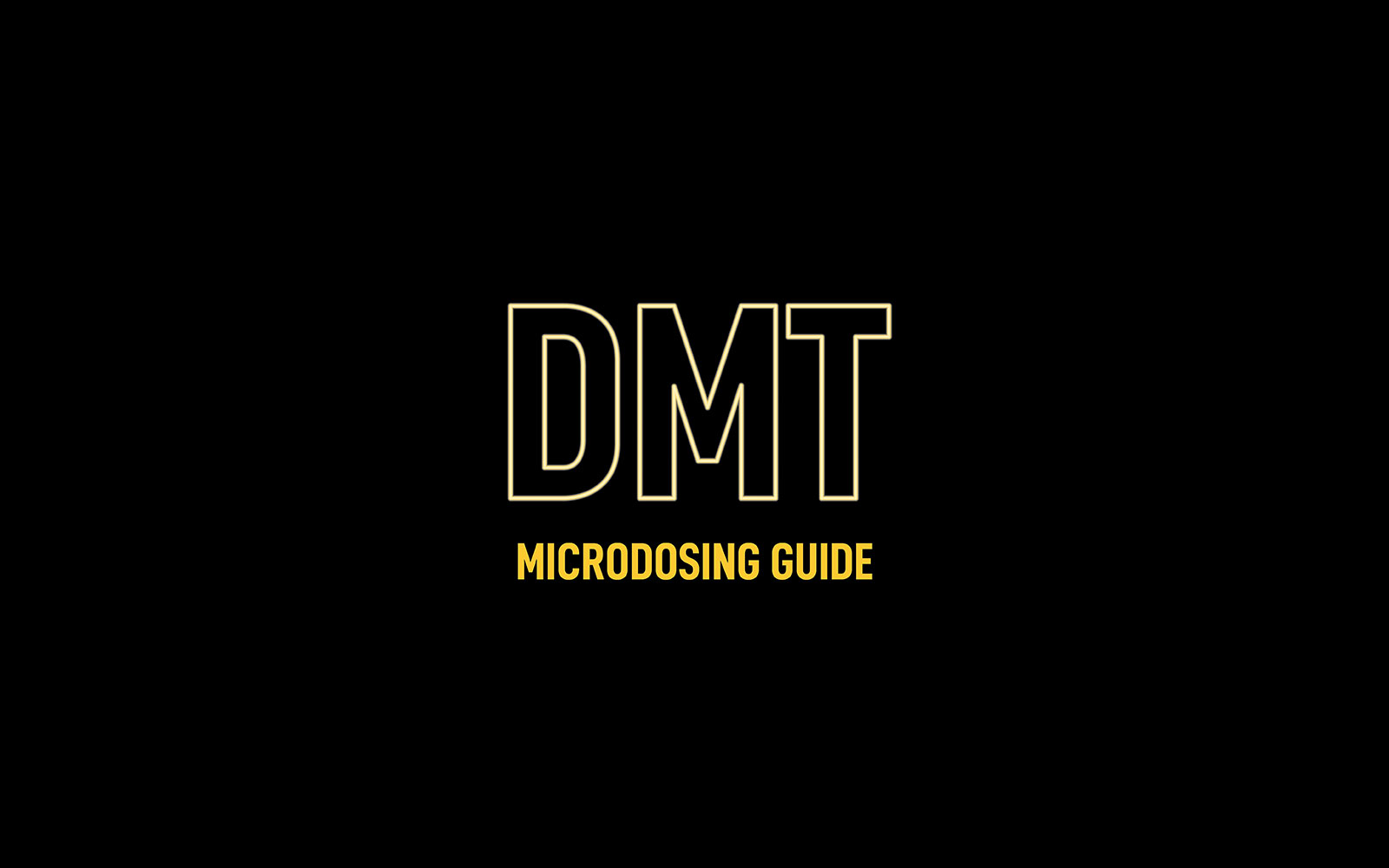Microdosing DMT & Common Dosages Explained
DMT has quickly picked up the attention of mainstream media and the psychedelic community in the past few years.

The most common method of measuring a DMT dosage is in milligrams. Due to the extremely small amount of DMT required to produce effects, use a precision scale for accurate measurements. This is particularly the case when measuring doses for microdosing.
The psychedelic community considers eyeballing a dose nearly impossible. Because the condition it was kept in, whether or not it was squeezed, potential impurities, and the oilyness of the substance plays an important role in the experience. Clinical research doses of DMT range from 0.05 mg/kg to 1 mg/kg. For an average adult weighing 70 kilograms, about 150 pounds, this would be doses from 3.5 milligrams to 70 milligrams.
These studies were not conducted with microdosing in mind. Instead these studies aim to better understand DMT’s effects and its potential use in psychedelic psychotherapy. Small doses at or around 0.05 mg/kg were generally used in a control group. A microdose does not produce any acute effects commonly associated with the substance. Instead, it produces a psychological and social benefit from microdosing on a regular schedule. When microdosing DMT, if you feel an onset of effects, the “sound of silence,” or any other strong effects commonly associated with DMT you consumed beyond a microdose.
The effects of a true DMT microdose consist of increased mindfulness, elevated levels of concentration, alleviated symptoms of depression and anxiety, and improvements to overall well-being. Effectively microdosing DMT involves consuming accurate doses each time. This will allow you to fine tune your doses to find what the right amount is for you. Another important aspect of microdosing DMT is ensuring the substance you intend to consume is pure DMT. A common method of testing DMT uses an Ehrlich reagent test. To perform this test simply place one drop of the reagent onto your substance and observe the color the reagent turns. In the presence of a tryptamine, a class of drugs containing DMT, the reagent will turn a purple color. Consuming accurate doses starts with properly measuring out your dose. To properly measure out a DMT dose, you need a precision scale that measures at least to the 0.001 milligram, commonly referred to as a jewelers scale. Now that you have a dose measured, you will need to figure out which method of consumption works best for you. Unlike psilocybin and LSD, you cannot simply ingest DMT due to the rapid pace at which your body metabolizes the substance. This prevents DMT from becoming active unless another compound slows its metabolism. An MAOI, or monoamine oxidase inhibitor, slows the rate at which the body metabolizes DMT allowing it to become active. Ayahuasca brews simply combine plants containing MAOIs and DMT to produce an orally active form of DMT. Vaporizing is another way to consume pure DMT. This does not mean taking an open flame to your DMT as it will burn and become inactive. Instead, DMT activation occurs through vaporization at a temperature of roughly 160 degrees Celsius, or 320 degrees Fahrenheit. This only applies to DMT in its freebase form. DMT in its salt form breaks down when heated and may form a more toxic substance. Its freebase form usually has the appearance of a white or transparent crystal. DMT could also be snorted, however it is fairly painful to consume using this method. Experimental knowledge suggests DMT users do not combine the substance with anything other than MAOIs. Most users recommend following an MAOI diet prior to consuming an MAOI. Consuming DMT alongside any phenethylamine, such as mescaling, 2C-B, or MDMA, can be extremely dangerous. This combination potentially causes extreme adverse effects and can even be fatal.
The psychedelic community highly recommends any individual with a history of epilepsy or schizophrenia consult with a psychiatrist prior to using DMT. DMT has a low risk of overdose. Current studies suggest an individual can consume upwards of 5.6 grams of DMT, which is roughly 30 times the common dose, before the risk of overdose and death increases. Keep in mind that high doses of DMT, though the risk is low, can result in an unpleasant experience. Most deaths associated with DMT were the result of pre-existing conditions or a combination of substances. However, the American Association of Poison Control Centers found a correlation between DMT, comas, and respiratory arrest.
Read the full article at the original website
References:
